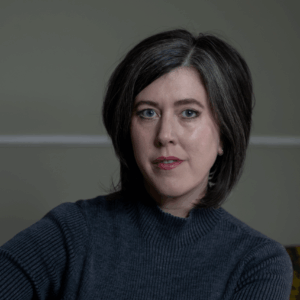Home / 2025 AES International Conference on Artificial Intelligence and Machine Learning for Audio Program
You are currently logged in as an
Institutional Subscriber.
If you would like to logout,
please click on the button below.
Home / 2025 AES International Conference on Artificial Intelligence and Machine Learning for Audio Program
Schedule is subject to change.
View the listing of Accepted Papers or Panels and Tutorials that will be slotted in the schedule.
8:00 AM – 9:20 AM
Registration & Coffee Break
Welcome Ceremony
9:40 AM – 10:40 AM
12:00 PM – 1:40 PM
1:40 PM – 2:40 PM
Keynote Presentation
Drink Reception
8:00 AM – 9:00 AM
Workshops & Paper Sessions
Registration
1:40 PM – 2:40 PM
Final Jam




Presentation Title: Report 2025: Present-Day Trends in AI for Music, Music Production and Audio Technology
We’ll hear perspectives resulting from research examining policies and approaches to integrating AI in curriculum development and industry partnerships within music, music production, and audio technology education programs, based on interviews with program directors and institutional leaders, and offering a broad perspective on current trends.
As AI moves into educational programs they face a crossroads: embrace its potential or guard against its pitfalls. This talk maps the current terrain of threats and opportunities in music and technology training.
Presentation Title: Ethical MIR Research for Trustworthy AI: Principles, Challenges, and Practices
As AI systems increasingly shape how music is created, discovered, and experienced, the need for ethical, transparent, and culturally sensitive research in Music Information Retrieval (MIR) has never been more urgent. In this talk, I will argue for the importance of rethinking MIR research in the context of trustworthy AI, grounding the discussion in a set of ethical principles—respect for creative integrity, cultural sensitivity, user agency, and fairness.
Building on these foundations, I will explore key research directions that emerge from such a commitment, including the development of culturally diverse datasets, tools for attribution and content provenance, mechanisms for bias detection and mitigation, and the design of explainable, open, and user-controllable AI systems. I will emphasize the need for AI to support—not replace—human creativity, advocating for collaborative platforms that foster meaningful interaction between humans and machines.
Throughout the talk, I will illustrate these ideas with examples from ongoing projects at the Music Technology Group (MTG) of Universitat Pompeu Fabra, showcasing how our work strives to balance technological innovation with ethical responsibility, cultural awareness, and openness. The aim is to outline a roadmap for a more inclusive, responsible, and impactful future for AI and MIR research.
Presentation Title: Towards a fairer approach to generative AI training
Abstract: Ed will discuss the issues that arise when generative AI companies scrape training data without consent, and the alternative – licensing training data – that is being embraced by many AI music companies.
Presentation Title: Commercial AI in 2025 – an Investment Perspective Abstract: How the latest AI technology is disrupting the creative industries and creativity itself The world of music has always been defined by disruption. From vinyl to CDs, from downloads to streaming, every leap in technology has rewritten the rules of how music is created, distributed, and consumed. Now, the industry faces its most profound shift yet: artificial intelligence. For some, AI is a saviour – offering new ways to manage the tidal wave of content and unlock creativity. For others, it is a destroyer – threatening artistry, originality, and livelihoods. As with past transformations, the truth likely lies somewhere in between. But what is certain is that AI is already reshaping the music business at every level: discovery, production, distribution, and monetisation.
September 8 – 9:20am-11:00am
Real-Time Neural Audio Inference
F Caspe & Jatin Chowdhury
September 8 – 9:20 -11:00am
How to Generate Large-Scale Room-Acoustic Datasets: Leveraging State-of-the-Art Simulation Methods to Improve Downstream Performance of Data-Driven Approaches
Georg Götz and Finnur Pind
September 8 – 16:20pm-17:40
Privacy for Audio AI: Risks, Challenges, and Emerging Solutions in the Era of Audio AI
Thomas Deacon, Jennifer Williams, Jason R. C. Nurse, Christopher Hicks, Gabriel Bibbó, Arshdeep Singh, and Mark D. Plumbley
September 10 – 15:40 – 17:00
Neural Audio Coding Techniques and Their Evaluation
Pablo M Delgado, Jürgen Herre, Jan Skoglund, Stéphane Ragot, and Julian Parker